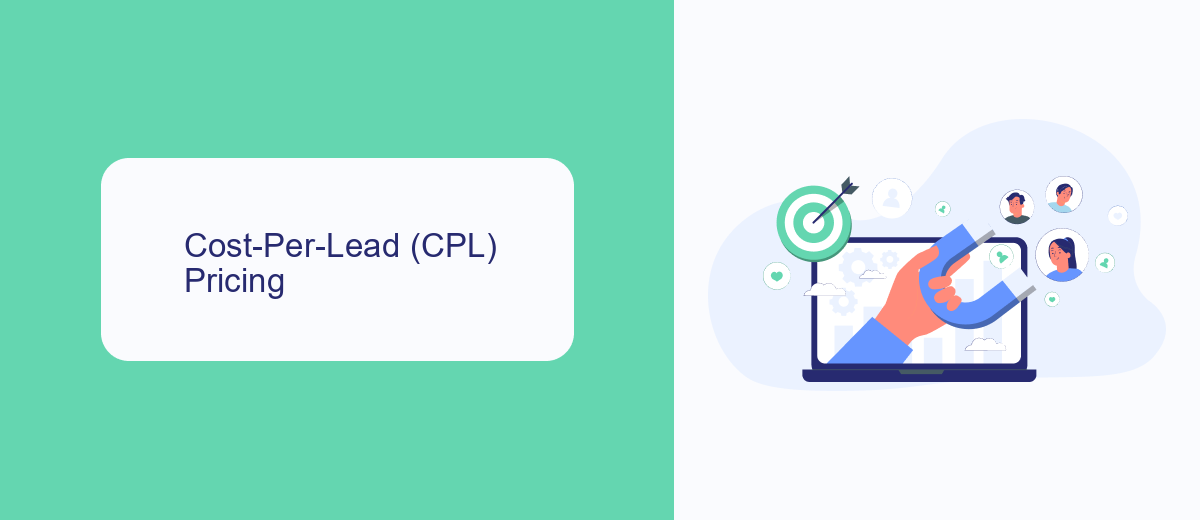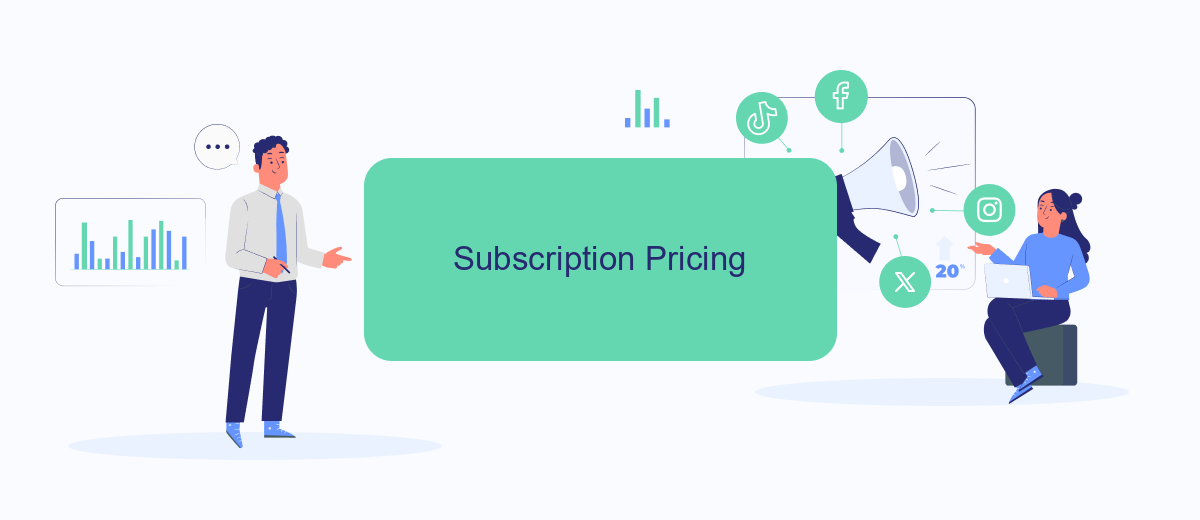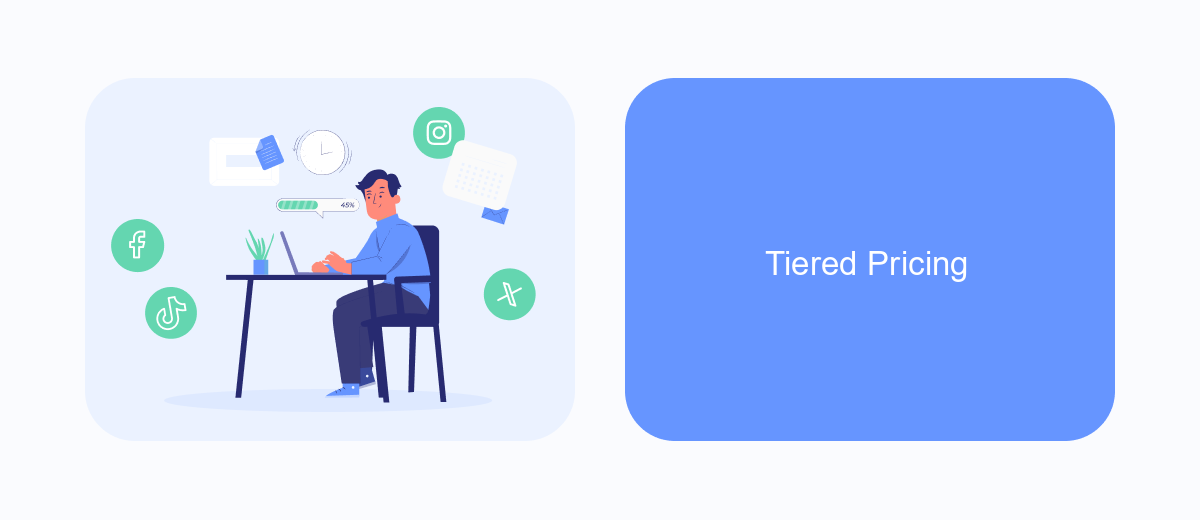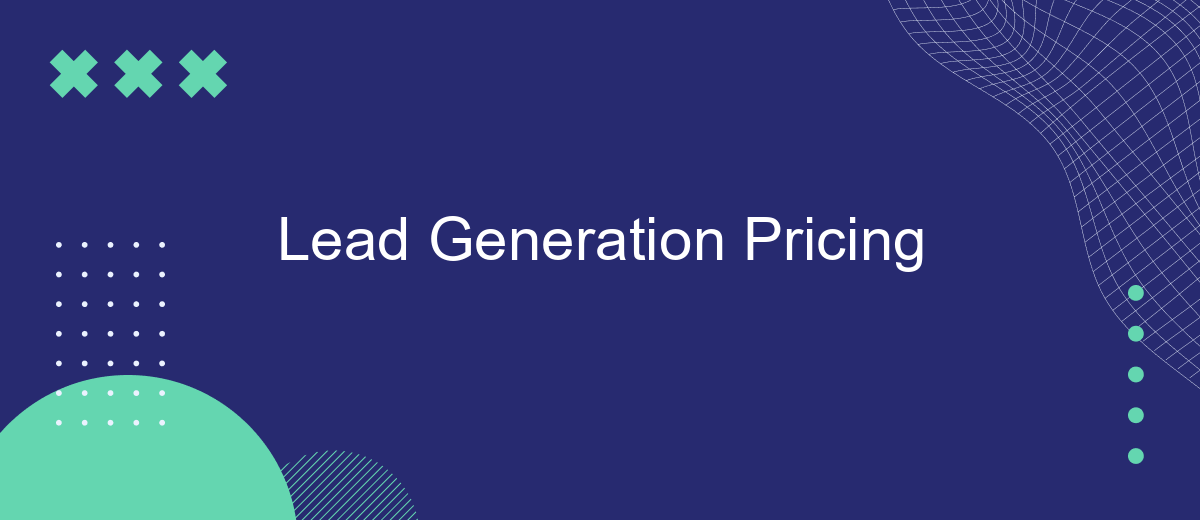Lead generation pricing is a critical factor for businesses looking to expand their customer base and maximize ROI. Understanding the costs associated with acquiring new leads can help companies allocate their marketing budgets more effectively. This article explores the various pricing models, factors that influence costs, and strategies to optimize your lead generation efforts while staying within budget.
Lead Generation Pricing
Determining the cost of lead generation is crucial for businesses aiming to optimize their marketing budgets. The pricing can vary based on several factors, including the complexity of the campaign, the target audience, and the channels used. It's essential to consider these variables to ensure a cost-effective strategy.
- Campaign Complexity: More intricate campaigns with multiple touchpoints and personalized messaging will generally cost more.
- Target Audience: Niche markets or highly specific demographics may require more resources to reach effectively.
- Channels Used: Different platforms, such as social media, email marketing, or pay-per-click advertising, come with varying costs.
In addition to these factors, integrating automation tools like SaveMyLeads can streamline the lead generation process and potentially reduce costs. SaveMyLeads allows businesses to automate data transfer between marketing platforms, ensuring that leads are captured and nurtured efficiently. By leveraging such tools, companies can enhance their lead generation efforts while keeping expenses in check.
Cost-Per-Lead (CPL) Pricing

Cost-Per-Lead (CPL) pricing is a model where businesses pay for each lead generated through their marketing efforts. This model allows companies to allocate their marketing budgets more efficiently, as they only pay for actual leads rather than for clicks or impressions. CPL pricing is particularly beneficial for businesses looking to maximize their return on investment (ROI) by focusing on acquiring high-quality leads that have a higher likelihood of conversion.
To optimize CPL campaigns, many businesses utilize integration services like SaveMyLeads. SaveMyLeads helps streamline the process by automatically transferring leads from various marketing channels into a CRM system, ensuring that no potential customer is overlooked. This automation not only saves time but also enhances the accuracy and speed of lead management, making CPL campaigns more effective and efficient. By leveraging such tools, businesses can better track their CPL expenses and outcomes, leading to more informed decision-making and improved marketing performance.
Subscription Pricing

Subscription pricing for lead generation services offers businesses a predictable and scalable way to manage their costs. This model typically involves a monthly or annual fee that grants access to a range of features and services, which can be adjusted based on the specific needs of the business.
- Basic Plan: Provides essential tools for small businesses, including basic lead capture forms and limited integrations.
- Pro Plan: Includes advanced features such as enhanced analytics, multiple user accounts, and priority support.
- Enterprise Plan: Offers comprehensive solutions with custom integrations, dedicated account management, and full API access.
One of the key benefits of subscription pricing is the ability to integrate seamlessly with other tools and platforms. Services like SaveMyLeads facilitate these integrations, allowing businesses to automate their lead generation processes and streamline workflows. By connecting various marketing and sales tools, businesses can ensure that their lead management system is both efficient and effective.
Tiered Pricing

Tiered pricing is a strategy that allows businesses to offer different levels of service or product features at varying price points. This approach caters to diverse customer needs and budgets, making it a flexible and attractive option for both companies and consumers.
By implementing tiered pricing, businesses can maximize their revenue potential by targeting multiple market segments. Each tier can offer a unique set of features, allowing customers to select the package that best suits their requirements and financial capabilities.
- Basic Tier: Includes essential features at a lower cost.
- Standard Tier: Offers additional functionalities and support.
- Premium Tier: Provides comprehensive services with advanced features.
To manage lead generation efficiently across different tiers, integrating services like SaveMyLeads can be highly beneficial. SaveMyLeads automates data transfer between various platforms, ensuring that leads are captured and nurtured effectively, regardless of the chosen pricing tier. This automation helps streamline processes and enhances customer experience, ultimately driving better results for businesses.
Flat-Rate Pricing
Flat-rate pricing is a straightforward and predictable method for lead generation services, where businesses pay a fixed fee for a set number of leads or a specific period of service. This pricing model offers transparency and simplicity, making it easier for companies to budget their marketing expenses without worrying about fluctuating costs. By knowing exactly how much they will spend each month, businesses can better allocate resources and plan their strategies effectively.
One of the key advantages of flat-rate pricing is its ability to integrate seamlessly with various lead management tools and services. For example, SaveMyLeads can be utilized to automate the process of capturing and organizing leads, ensuring that businesses get the most out of their flat-rate investment. This service connects different platforms, streamlining workflows and enhancing the efficiency of lead generation efforts. As a result, companies can focus more on converting leads into customers rather than managing the complexities of their lead generation campaigns.
- Automate the work with leads from the Facebook advertising account
- Empower with integrations and instant transfer of leads
- Don't spend money on developers or integrators
- Save time by automating routine tasks
FAQ
What factors influence the cost of lead generation?
Is it better to pay per lead or use a subscription model?
How can I ensure the quality of the leads I am paying for?
Can automation tools help reduce lead generation costs?
What is the average cost per lead in different industries?
Are you using Facebook Lead Ads? Then you will surely appreciate our service. The SaveMyLeads online connector is a simple and affordable tool that anyone can use to set up integrations for Facebook. Please note that you do not need to code or learn special technologies. Just register on our website and create the necessary integration through the web interface. Connect your advertising account with various services and applications. Integrations are configured in just 5-10 minutes, and in the long run they will save you an impressive amount of time.

